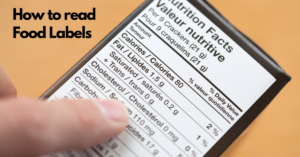Protein is an imperative macronutrient that plays a crucial role in building and repairing tissues, supporting immune function, and maintaining muscle mass. Despite its importance, many people struggle to consume an adequate amount of protein in their diets. In this comprehensive guide, we will explore the benefits of protein, how much you need daily, and provide practical tips on how to ensure you are getting enough protein in your meals. Whether you are a fitness enthusiast looking to build muscle, a vegetarian seeking plant-based sources of protein, or simply want to improve your overall health, this article will equip you with the knowledge and tools to harness the power of protein for a stronger, healthier you.
Understanding Your Protein Needs
Determining Your Individual Protein Requirements
The key to ensuring optimal protein intake is understanding your individual protein requirements. If you are a sedentary individual, your protein needs will differ from those of a professional athlete. Factors such as age, weight, activity level, and muscle mass all play a role in determining the amount of protein you should be consuming on a daily basis.
Factors Influencing Protein Needs
There are several factors that can influence your protein needs, including your exercise regimen, goals (such as muscle gain or weight loss), and overall health status. It’s important to consider these factors when determining your protein intake to ensure you are meeting your body’s requirements for muscle repair, growth, and maintenance.
- Your age, as protein needs may increase with age to prevent muscle loss
- Your activity level, as those who exercise regularly may require more protein for muscle repair
After considering these factors, you can better gauge how much protein your body needs to function optimally. Remember to consult with a healthcare professional or nutritionist if you have specific concerns about your protein intake.
Sources of Protein
Animal-Based Protein Options
An crucial component of a healthy diet, animal-based protein sources like chicken, beef, fish, and eggs provide high-quality protein that is easily absorbed by the body. These foods also contain crucial amino acids necessary for various bodily functions. Including a variety of animal-based protein options in your diet can help ensure you meet your daily protein requirements.
Plant-Based Protein Alternatives
Plant-based protein options such as beans, lentils, tofu, and quinoa are excellent alternatives for individuals looking to reduce their consumption of animal products or follow a vegetarian or vegan diet. While plant-based proteins may not always contain all crucial amino acids on their own, combining different plant protein sources throughout the day can help you achieve a complete amino acid profile. Additionally, plant-based protein sources are often rich in fiber, vitamins, and minerals, offering various health benefits beyond just protein content.
For those concerned about getting enough protein from plant-based sources, incorporating protein-rich vegetables like spinach, broccoli, and Brussels sprouts, as well as nuts and seeds such as almonds, chia seeds, and hemp seeds can help boost your protein intake. Including a variety of protein-rich plant foods in your meals can provide you with the necessary amino acids your body needs to thrive.
How to Incorporate More Protein into Your Diet
Tips for Adding Protein to Every Meal
All meals should include a good source of protein to support your body’s vital functions and keep you feeling full and energized. Incorporating protein into every meal can be easier than you think. Here are some tips to help you meet your protein needs throughout the day:
- Start your day with a protein-rich breakfast, such as eggs, Greek yogurt, or a protein smoothie.
- Include a lean protein source like chicken, fish, tofu, or legumes in your lunch and dinner.
- Snack on protein-rich foods like nuts, seeds, or cheese to keep your energy levels steady between meals.
Though it may require some planning, adding protein to every meal is a simple and effective way to improve your overall health and well-being.
How to Balance Protein with Other Nutrients
Even though protein is a crucial component of a healthy diet, it’s vital to ensure you’re also getting a balance of other vital nutrients to support your overall well-being. While focusing on protein, don’t overlook the importance of incorporating carbohydrates, healthy fats, vitamins, and minerals into your meals. It’s vital to have a well-rounded diet that includes a variety of foods to meet all your nutritional needs.
Overcoming Common Protein Pitfalls
How to Avoid Excessive Protein Intake
Intake of excessive protein can have negative effects on your health, such as putting strain on your kidneys and liver. To avoid this, it is important to calculate your protein needs based on factors like age, weight, and activity level. Be mindful of portion sizes and choose lean protein sources to prevent going overboard.
Strategies for Dealing with Dietary Restrictions
Dealing with dietary restrictions can make it challenging to meet your protein needs, especially if you are vegetarian, vegan, or have food allergies. Common strategies for overcoming this include incorporating a variety of plant-based protein sources such as beans, lentils, nuts, and seeds. Supplements like pea protein or soy protein powders can also be helpful in meeting your daily protein requirements.
Conclusion
Considering all points, it is clear that protein is a crucial nutrient that our bodies need for overall health and well-being. By understanding the importance of protein and incorporating adequate amounts into our diets, we can support muscle growth, repair tissues, boost our immune systems, and feel more satisfied after meals. Whether through animal or plant-based sources, there are numerous ways to ensure you are getting enough protein in your diet. By making informed choices and prioritizing protein intake, you can optimize your health and enjoy the benefits of a protein-rich diet.


